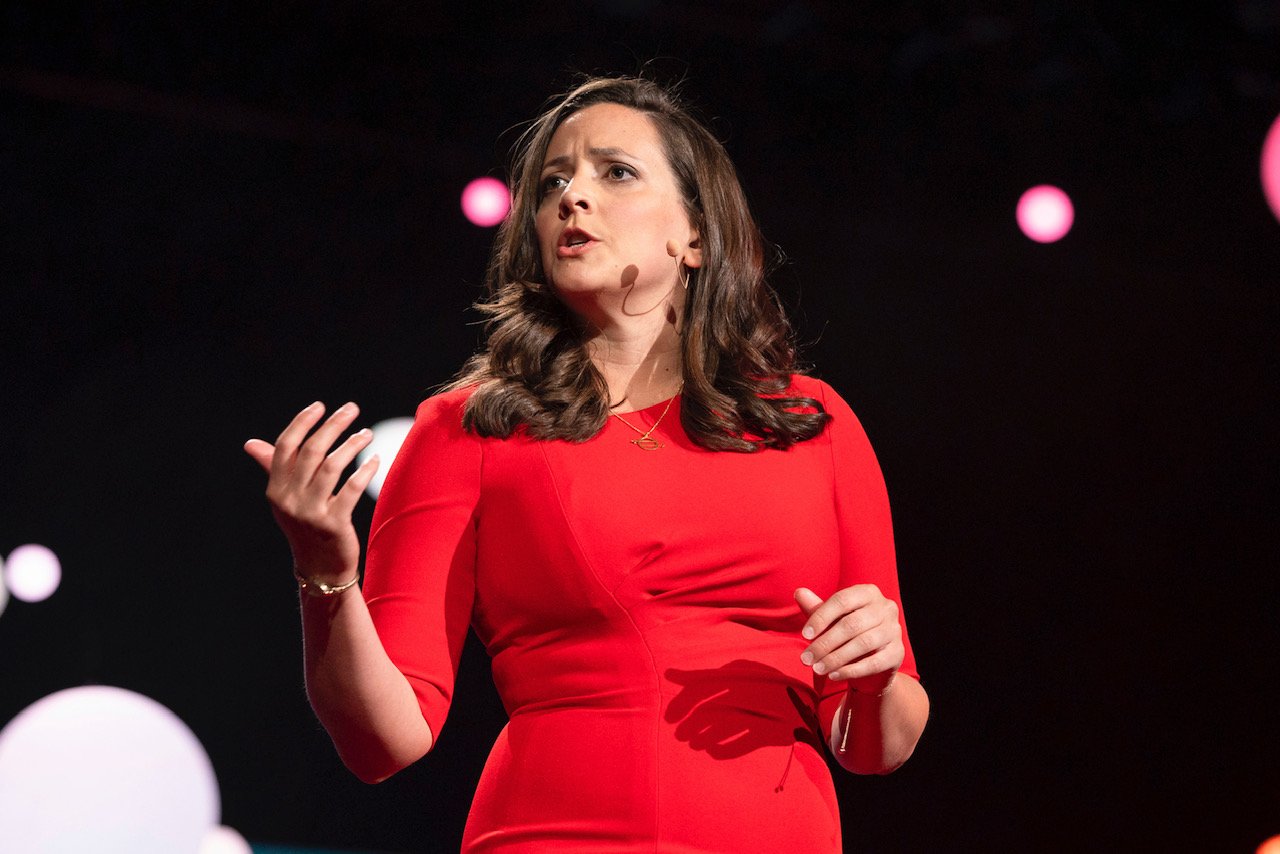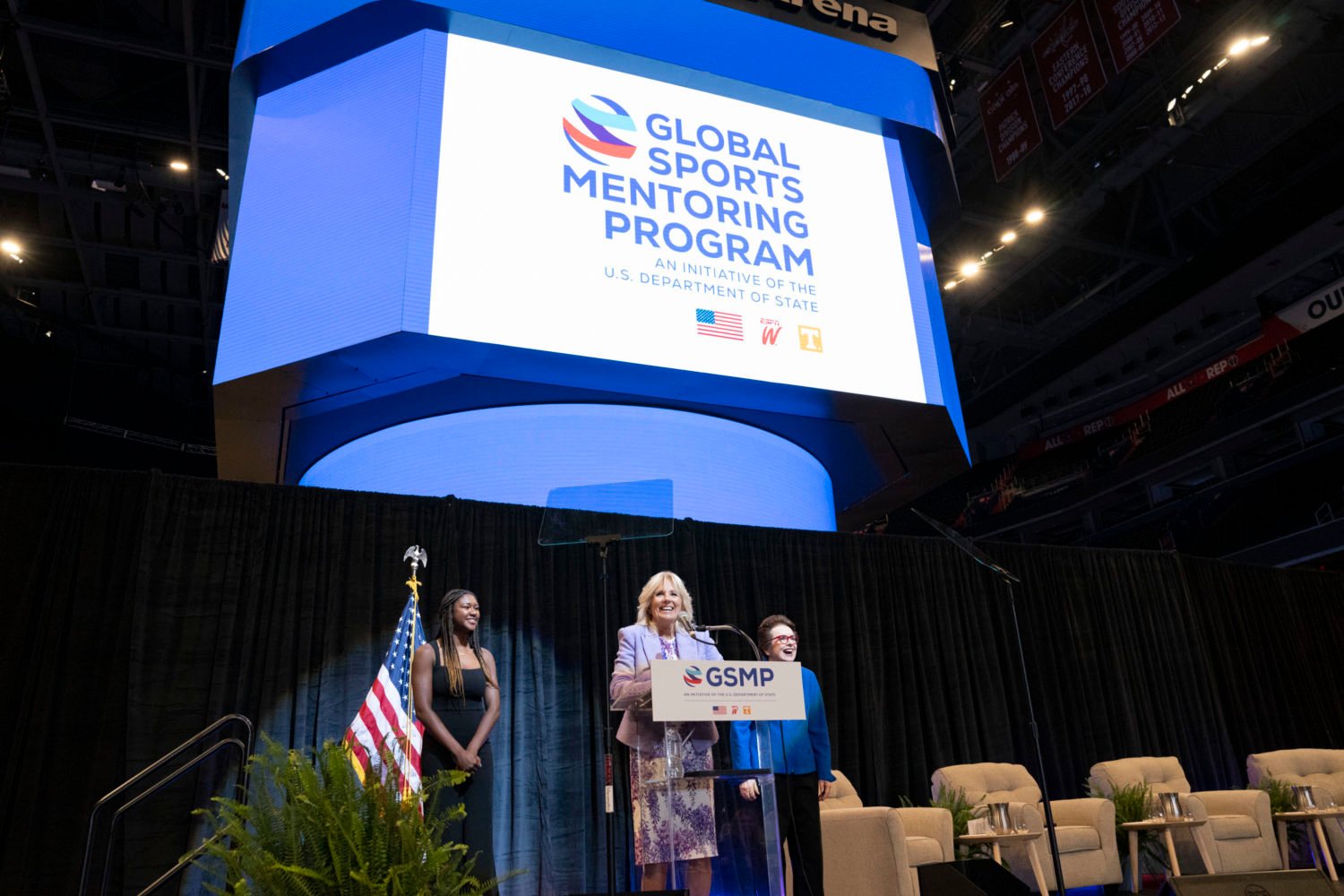This week marks the 50th anniversary of Title IX, the federal law that bans discrimination on “the basis of sex” in schools and in sports. In recognition of the milestone, the Biden administration proposed an expansion of Title IX protections Thursday, which would ensure sexual orientation and gender identity are included under the law, and strengthen protections for LGBTQ students.
We spoke to Laura Dunn, a DC victims’ rights attorney who specializes in Title IX cases, about her work, the expansion of Title IX, and what still needs to be done to protect people from gender- and sex-based discrimination.
You actually sued the Trump administration over rules the Biden administration is now rolling back. Can you explain what these changes will mean?
Traditionally, there was always a question mark of whether Title IX also protected LGBTQ students. Some cases they said yes, some cases they said no. It had to do with the specific nature of the harassment – was it about their gender identity or their sexual orientation, which wouldn’t have been protected? So it left a patchwork, and a tough situation for a lot of LGBTQ students who were being harassed, bullied, and even pushed to the point of suicide. I’m very happy to know that Title IX is expanding to protect these students.
A lot of the regulations that came out from the Trump administration protected those who were accused of committing discrimination, harassment and violence. It was very much flipping civil rights on its head. I think one of the worst ones was they heightened the standard [for] emergency removal. One case comes to mind where a male student had punched a female student in the face. He lived on the same floor and they didn’t move him off that floor. They expected her to adjust. Very dangerous situations have been left on campus, and the Biden administration has been aiming to change that.
How many years have you been working on Title IX cases? Which ones still stick with you?
I started it initially as a survivor myself in 2004, seeking justice. I’ve spent 8 years as a lawyer, 16 as an advocate. A fulfilling thing today in court: I helped a survivor here in Virginia first report to her college campus during a tough time, right when the Trump administration regulations had come out. She didn’t know if she wanted to come forward, but with my support decided to do that and we got the male student expelled. She testified and the case is now going to trial, because she had the courage. I see successes everyday. I think it’s a success just to have a survivor report, regardless of how the school responds.
The toughest cases are ones where the survivor and even the witnesses are doing everything they can to hold someone accountable, and yet for whatever reason, the school isn’t being fair. You would think that it would be simple that schools would want safe campuses, and it is not a priority. They are worried about money and reputation. In all the painful cases I’ve ever seen, the school just didn’t want to find a person responsible. I am big on due process, just not unnecessary process. We’re not trying to make it harder than it has to be, we’re trying to make it as fair as can be.
I understand you became an attorney to make sure that others didn’t go through what you went through as a survivor. What is it like, fighting for people who you might see yourself in?
People who have been directly affected are always the most effective advocates. I was a freshman at the University of Wisconsin. I had been a student athlete all through high school. I was honored to be part of the UW crew team, and trusted my teammates. A few of the male teammates made a decision when I was very intoxicated to take me off campus and rape me. That devastated my life. I lost a sense of who I was and how the world was.
At first I did what so many survivors did. I chose silence. During a summer class, a professor talked about how over 80% of sexual assaults are never reported, and I was like, ‘oh, that’s me.’ She said the school has to do something. She was talking about Title IX, and I didn’t know that. I didn’t know what my options were. No one is prepared for that ever. Why should they be? We shouldn’t be having this issue. Once I felt empowered to go to the school and report, I did. I didn’t want to be part of the silence.
The criminal system failed. I lost all my civil claims. All I had was the campus process. They took an entire school year, then the decision said consent was moot. Consent is the whole point, you can’t say it’s moot, but they said, ‘you were drinking, he was drinking, we can’t figure it out.’ That’s crazy. That decision would never be made in the United States today because of the work I and so many others have done in Title IX.
Can you talk about how Title IX relates to trans women in sports? What would you say to those who use Title IX as a way to ban them from sports?
I’m supportive of transgender students and nonbinary individuals. I want them to have access to athletic opportunities and educational opportunities. The question is how do we do that and ensure fairness. Maybe it’s just because I was a female athlete that was faster than most men I competed against, but gender is not the criteria. There’s different ways for us to categorize and create fair competition without having to engage with gender discrimination.
You’ve said in past interviews that you know what it’s like to feel like justice isn’t being served. Why are you still hopeful?
Nothing is more disempowering than being denied justice. I know what that’s like as a rape survivor facing gender discrimination. I think it’s easier to survive a rape than it is to survive the process. I do not say that lightly at all, but I do mean it.
There are more supporters of survivors than there’s ever been. Today, my client had numerous friends. She had a community that stood up for her. 20 years ago, that was not the case. We’re shifting that. MeToo had an impact, not on the legal system, but on the community. Title IX turned 50, and Title IX has been one of the best tools for pushing this edge of how possible justice is, but we need to go so much further. It is the criminal system that has not moved. Criminal convictions [in sexual assaults are still extremely rare].
I’ve been asked so many times, why did I fight? It’s such a weird question to me, because, what else was there? That is my answer.
*This interview has been edited and condensed for clarity.
















